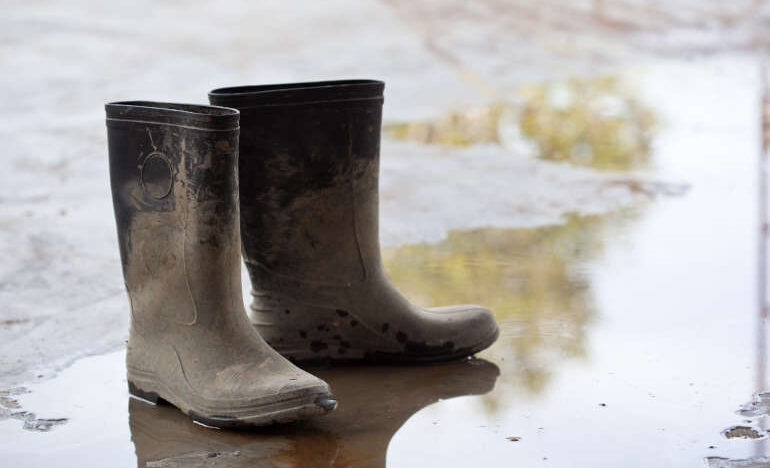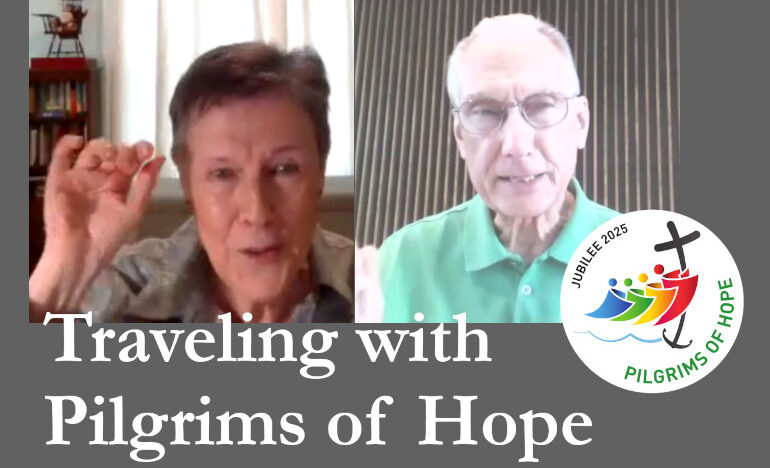Avoiding Mud Puddles or How to Move Beyond Mere Survival

An Assembling God’s Puzzle video
By Fr. Garry Richmeier, CPPS.
It is said that the behavior of animals is governed by instinct, and human behavior by intellect and free will. But we humans have instincts also, and probably the most powerful instinct is the instinct for survival.
Instincts are automatic, not controlled by rationality. When we believe our survival is threatened, whether that is our physical survival, emotional survival, social survival, or psychological survival, our instinct kicks in and basically forces us to do what is necessary to get what it is that we need to survive.
It is like a person who has been without water in the desert for a couple days and comes across a mud puddle. Their instinct for survival will probably force them to drink out of the mud puddle because that will keep them alive. It makes no difference if they know they will get sick, or if someone tells them not to. The instinct for survival takes over.
For most of us, our physical survival is pretty much guaranteed. But we learned as children that there is stuff out there that we need for emotional and psychological survival. We learned we needed the attention, approval, and love of our parents to provide a sense of self-worth and value, because there were few other ways we could get that survival stuff. If it happened that our parents were unable to provide that adequately because they were busy, stressed out, or for some other reason, it felt like we weren’t going to survive, and our survival instinct kicked in to get us what we needed.
The kid who learned that getting straight A’s in school got them their parent’s approval knocked themselves out to do that. Another kid learned that getting in trouble got them their parent’s attention. Another older kid learned that one of the few ways to get their parent’s approval was to follow in their parent’s footsteps regarding job or vocation. So they did that even though it might not have been what they wanted.
By the time we reach adulthood, we’ve hopefully developed a strong inner sense of our self-worth. But if we haven’t, we may continue the pattern we started as children of helplessly drinking out of mud puddles to assure survival.
To find value and belonging, one person may join a gang if that is one of the few options open to them. Another may stay in an abusive relationship because they are convinced that that is the only way to defend themselves against the threat of loneliness. Another person may compulsively grab control and power in every situation, destroying people in the process, because that person is convinced that that is the only way to find self-worth.
These are a few of the ways people drink from mud puddles for survival because they don’t believe there are other sources of survival stuff.
So how to avoid mud puddles? We have to change our ideas of what is threatening to our survival. There really is nothing out there that can take away our value and self-worth. But we sometimes have to convince ourselves of that, if we don’t want our instinct for survival to kick in and control our actions.
Our faith can help us here. We can remind ourselves continually what Jesus taught and lived — that we are important and precious simply because God made us. Nothing can change that. That fact does not depend on other people’s opinions of us, whether we’re liked or disliked, whether we’re successful or not, how many faults we have, or anything else. Furthermore, we are made in the image and likeness of God, as scripture tells us. That is pretty important and amazing.
If we spend time reflecting on these realities, they sink in and eventually become basic beliefs and attitudes. We can also make a list of all the reasons we are worthwhile, our virtues, talents, skills, abilities, etc., and spend time with those. As we let those things sink in more, we are better able to choose people to be in relationship with who will reinforce those realities. These will be people who care for us simply because we are worthwhile.
Most of our adult inner work is about relearning things we learned as children that weren’t very accurate. If we can come to a more realistic view that who we are as valuable human beings is not at risk by anything “out there,” our instinct for survival will not take over and make us go where we otherwise wouldn’t. And the more free we will be to choose how to live, love, and be at peace with ourselves and others.
All of the videos in this series can be found here: Assembly God’s Puzzle.
Never miss an article published on the Renewal Center website: Sign up to receive our newsletters.
[Fr. Garry Richmeier, a Precious Blood priest and spiritual director, holds a Master’s of Divinity Degree from St John’s University in Collegeville, Minnesota, and a Master’s of Counseling Psychology degree from the University of Missouri-Kansas City. He is a licensed professional counselor and a licensed marriage and family therapist.]
Photo 19702582 © Pigdevilphoto | Dreamstime.com
We’d Like to Hear from You!
We’d like to know what you think about this article. Send us a comment using the form below. Do you have a suggestion? Is there something you want to learn more about? Send us a note.
Related

Pilgrims of Hope, Episode 6: Walking with Cancer Survivors
Hosted by Fr. Ron Will, C.PP.S.
We are talking with people who find hope amid difficult circumstances or bring hope to others. In this episode, Kathy Keary talks about how centering prayer, journaling and other spiritual practices helped her cope with two life threatening health issues.

The Rollercoaster Torture
An Assembling God’s Puzzle video
By Fr. Garry Richmeier, C.PP.S.
Life is full of ups and downs, like a roller coaster, and that fact is a piece of life’s puzzle that we must deal with. Depending on how we deal with it, it can be torture, or it can be simply another difficult aspect of life to be navigated. How do we avoid the torture?
Categories
Assembling God's Puzzle Coffee with Padre Cooking & Spirituality Encounters of the 4th Kind Family Matters Reflections on the Eucharsitic Prayers Spiritual Resources Taize Prayers The Contemplative Life Traveling with Pilgrims of Hope Uncategorized Videos Week of Prayer for Uhristian Unity When you need a little help
